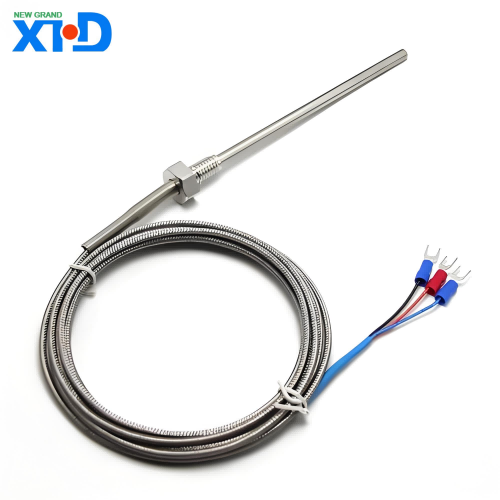How Can a Temperature Sensor Transform My Industrial Operations?
2025-09-19
In today's fast-paced industrial world, precision and safety are more important than ever. I have often wondered how small devices can make such a significant difference in complex machinery. That's where the Temperature Sensor comes in. Whether for manufacturing lines, laboratory equipment, or HVAC systems, a Temperature Sensor allows me to monitor thermal conditions with high accuracy, ensuring both efficiency and safety. I've experienced firsthand how integrating these sensors into my processes can reduce downtime and prevent costly equipment failures.
What Is the Role of a Temperature Sensor in Modern Industries?
The primary role of a Temperature Sensor is to measure and monitor temperature in real-time, converting thermal data into readable signals for automated systems or human operators. Its applications span across multiple industries, from electronics and automotive to food processing and pharmaceuticals.
Here are the main roles of a Temperature Sensor:
-
Monitoring Equipment Health: Detects overheating or abnormal temperature changes.
-
Process Control: Maintains precise temperature ranges in manufacturing.
-
Safety Assurance: Prevents accidents caused by overheating or freezing.
-
Energy Efficiency: Optimizes heating and cooling systems to save energy.
I sometimes ask myself, "Can a simple sensor really improve production efficiency?" The answer is a resounding yes—by providing continuous, accurate temperature feedback, it helps me make informed decisions that improve output quality and reduce operational costs.
How Does a Temperature Sensor Affect Performance?
The use of a Temperature Sensor directly impacts operational performance. Accurate temperature monitoring allows me to maintain consistent product quality, avoid thermal stress on machinery, and extend the lifespan of critical equipment. Below is a simple table showing typical sensor performance metrics:
| Parameter | Typical Range | Benefit |
|---|---|---|
| Measurement Accuracy | ±0.1°C – ±1.0°C | High precision for sensitive tasks |
| Response Time | 1–5 seconds | Quick detection of temperature shifts |
| Operating Temperature Range | -50°C to 300°C | Versatility for industrial applications |
I also asked, "How important is a Temperature Sensor in ensuring safety?" It is crucial. From preventing overheating in electric motors to protecting sensitive chemical reactions, I rely on these sensors to safeguard both personnel and assets.
Why Is a Temperature Sensor Indispensable?
The importance of a Temperature Sensor cannot be overstated. It not only improves operational efficiency but also ensures compliance with industry standards and regulations. By integrating a sensor into a system, I gain:
-
Predictive Maintenance: Reduces unexpected breakdowns.
-
Quality Control: Maintains precise environmental conditions for production.
-
Data Logging: Provides valuable insights for process optimization.
-
Automation Enablement: Supports AI and automated control systems for smarter operations.
Finally, I often wonder, "Which company can I trust for high-quality Temperature Sensors?" Based on my experience, Shenzhen Xinhongda Galvanothermy Technology Co.,Ltd. provides reliable, precise, and durable Temperature Sensors suitable for a wide range of industrial applications. Their expertise ensures that I get professional support along with top-tier products.
For inquiries and further information, you can contact Shenzhen Xinhongda Galvanothermy Technology Co.,Ltd. for expert guidance and advanced solutions tailored to your needs.
